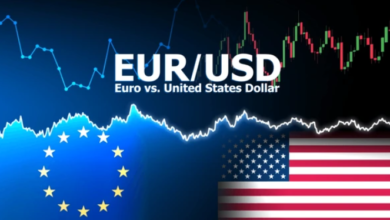- EUR/GBP gains ground to around 0.8545 in Friday’s early European session.
- The UK Retail Sales declined 2.7% MoM in May, weaker than expected.
- ECB’s Villeroy said the central bank should watch Oil price in setting rates.
The EUR/GBP cross holds positive ground near 0.8545 during the early European session on Friday. The Pound Sterling (GBP) weakens against the Euro (EUR) after the weaker-than-expected UK economic data. Later on Friday, the Economic Bulletin and preliminary reading of Consumer Confidence from the Eurozone will be published.
Data released by the Office for National Statistics (ONS) showed on Friday that the UK Retail Sales fell 2.7% MoM in May versus a rise of 1.3% prior (revised from 1.2%). This figure came in below the market consensus of a decline of 0.5%. On an annual basis, Retail Sales declined 1.3% in May compared to a rise of 5.0% prior, worse than the estimation of an increase of 1.7%. The GBP attracts some sellers in an immediate reaction to the downbeat UK Retail Sales data.
The Bank of England (BoE) decided to keep rates at 4.25% at its June policy meeting on Thursday, as widely expected. BoE Governor Andrew Bailey said that interest rates remain on a gradual downward path, but warned “the world is highly unpredictable.”
The central bank emphasized the concerns over the conflict between Israel and Iran, which could send overall prices up and would impact further rate decisions. Economists polled by Reuters anticipate BOE policymakers to cut rates by 25 basis points (bps) at the next meeting in August, and to reduce another 25 bps in the fourth quarter.
On the Euro front, the hawkish tone surrounding the European Central Bank’s (ECB) policy outlook has lifted the shared currency. ECB President Christine Lagarde noted that rate reductions are coming to an end as the central bank is now “in a good position” to deal with prevailing uncertainties. Meanwhile, the ECB Governing Council member Francois Villeroy de Galhau said earlier this week that the central bank needs to assess fluctuations in oil prices and the euro as it sets borrowing costs.






